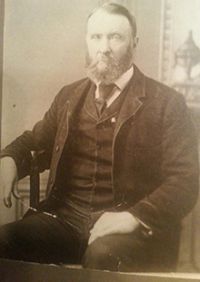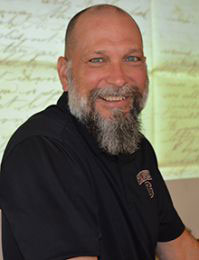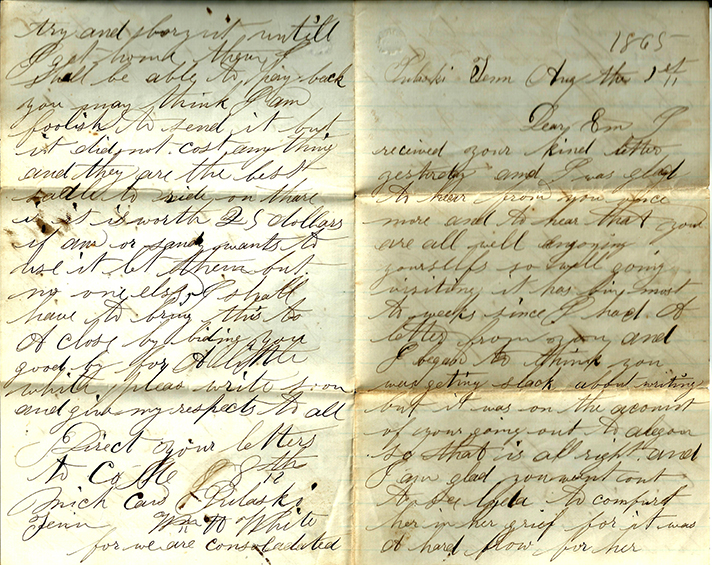Eighth-grader Nevin Hooper says learning about a local Civil War soldier was “way more cool” than learning about the bloodiest war in U.S. history from a textbook.
Libby “Fred” Rozema and Riordan McPhail agree.
“You always get it from the textbook’s point of view,” Riordan said.
Added Libby: “I thought it was really interesting having the actual, handwritten letters, being able to read what someone who was actually in it was thinking.”

Blake Mazurek, middle school American history teacher, has for years been bringing in letters written by a relative by marriage who fought in the war between the Northern and Southern states that lasted from 1861 to 1865.
William Horton White, of Ionia, fought in Kentucky and Tennessee as part of the 11th Michigan Cavalry. The 18 or so letters are from him to his first wife, Emeline, until he was discharged in October 1865. He died in 1897 at age 58, and is buried in Portland, east of Ionia.
Mazurek has students transcribe the original letters, which trace White’s wartime travels on a map and pull out both specific and broad information about the war and the time period. To wrap up the weeklong project, the eighth-graders hand-write a letter to Mazurek in White’s style, explaining to him, in their own words, what they learned.
“It opens the door to talk about a lot more than the major battles and the famous people of that time,” Mazurek said. “They get the detail of what life was like for this one man, but he also hits on topics that jump to the broader scope.”

History Made Personal
Mentioned in White’s letters were his thoughts on the election of President Abraham Lincoln (White called those who voted against him “the fools”); Gen. Ulysses S. Grant’s battle victories over Gen. Robert E. Lee; the introduction of the first U.S. military unit of black soldiers; and what it was like to be present at the execution of Confederate spies.
“I tell the kids, ‘Never in a million years did (White) think that his fingerprint-smudged letters would one day help hundreds of eighth-graders learn about the war and the world,’ ” Mazurek said. “What it shows us is that we all leave something.”
It also doesn’t hurt that the teacher is passionate about the lesson.
“Since he loves the topic of this history stuff so much,” Nevin said, “he makes it more interesting and fun.”
CONNECT
Civil War Trust










